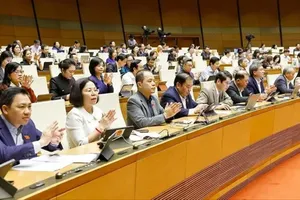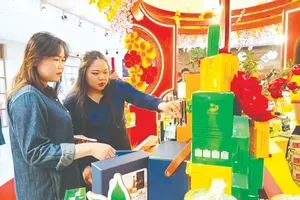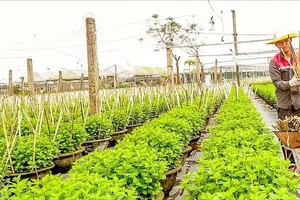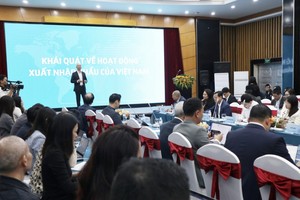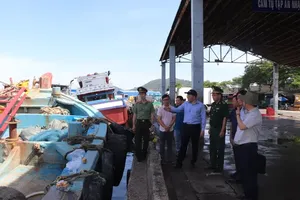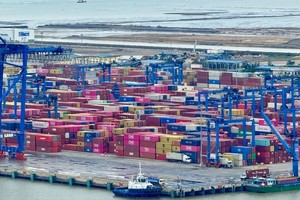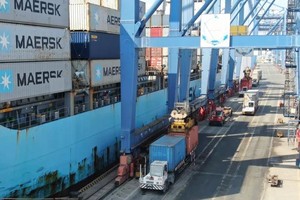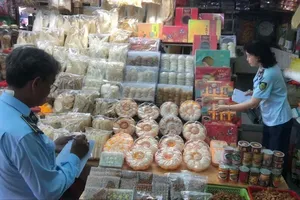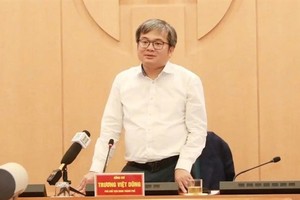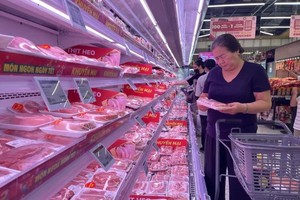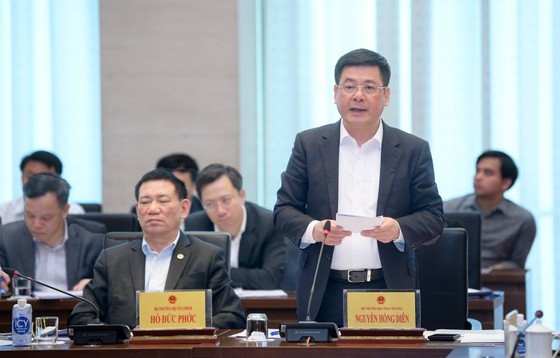 |
Minister of Industry and Trade Nguyen Hong Dien is presenting his speech |
Minister of Industry and Trade Nguyen Hong Dien informed that despite experiencing hardship, the domestic petroleum supply last year was still guaranteed. The total supply amount in 2022 reached 25.58 million cubic meters per tonne, exceeding the allocated target by 7.3 percent. In 2023, the Industry and Trade Ministry carefully routes fuel distribution among businesses at the rate of 27.34 million cubic meters per tonne, a rise of 15 percent compared to last year, to ensure sufficient merchandise in all cases.
As to petroleum price management, the Minister said that his Ministry has cooperated with the Finance Ministry to comply with Decree No.83 and Decree No.95 by the Government in accordance with global prices.
At the meeting, participants pointed out inadequacies and limits in current regulations.
_Petrol manufacturers enjoy specific mechanisms and policies, yet there are no commitments from them regarding the minimum output level, leading to passiveness when in need of finding a replacement.
_The national petroleum reserve is stored together with other items in commercial warehouses of enterprises in compliance with the National Reserve Law, resulting in a lack of transparency.
_The pricing methods show limits and can neither ensure competitiveness nor observance of market rules. The imposition of cost and profit on all businesses in the field leads to the elimination of competitive motivation.
_Certain price components are only reviewed semi-annually or annually, which is rather outdated compared to the real situation. The identification of the global price in the formula for the base price via taking the average price 10 days before the adjustment day cannot ensure this is the true maximum price for the next 10 days while creating unwanted gaps between the domestic prices and international ones.
Opinions were raised to let the Industry and Trade Ministry totally manage fuel prices for the sake of flexibility and proactiveness in price administration.
To explain the limits, Minister Dien first informed that the State has no warehouse especially for petroleum yet, so it is necessary to rent a place in businesses’ warehouses. In addition, the rate for fuel reserve fees is extremely low and outdated. His Ministry has intended to hold bidding sessions to select a suitable enterprise for this reserve task, but has not received any applications from any units.
At the beginning of 2022, certain fuel companies showed signs of hoarding goods. Functional agencies checked 2,700 locations and punished 600 of them with a total fine of VND20 billion (US$842,600). However, this is merely a temporary solution.
To conclude the session, Vice Chairman of the National Assembly Nguyen Duc Hai asked that the two Ministries of Finance and Industry-Trade work with related agencies to clearly understand the status of the domestic petroleum market, to urgently complete legal rules and policies while adjusting inadequate decrees or circulars in the field.
After this session, the Economic Committee was requested to prepare a report on the 8 fuel-related issues (supply, reserve, price, Price Stabilization Fund, business conditions, relationship between enterprises, state management, excise tax and value added tax policy), which will then be sent to Standing Committee of the National Assembly, the Government, and relevant ministries, agencies. In the report, there must be detailed proposals, recommendations for each ministry, agency, and locality for ease of adoption.
Vice Chairman Hai commented that fuel has always been a hot topic with profound effects on the national economy, energy security, and social security since it directly impacts the life of all Vietnamese citizens. Therefore, it is critical to review the fuel market, the results of state management of petroleum. Only then can inflation be better controlled to stabilize the macro-economy, manufacturing activities, and the life of the community in general.

